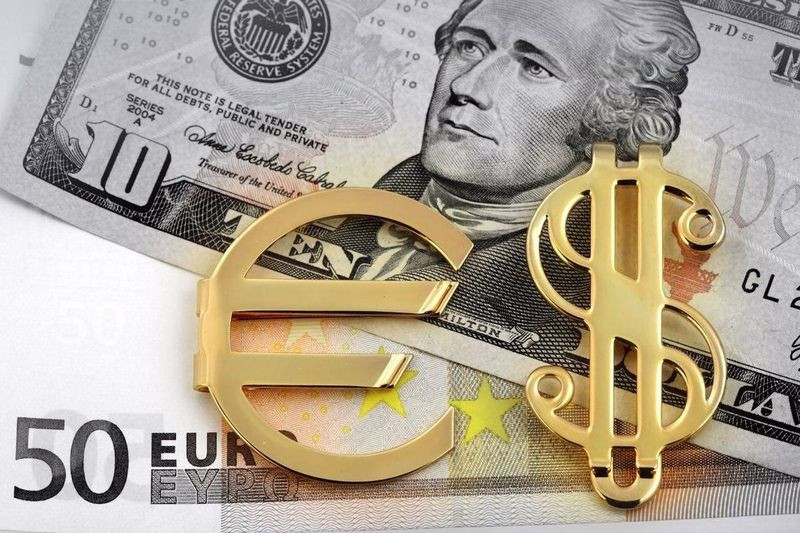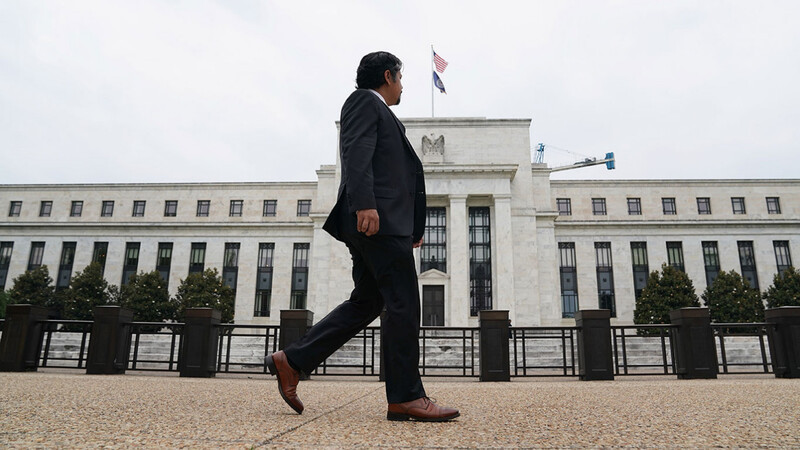
On Tuesday, the euro strengthened against the US dollar by about 0.13% and finished around $0.9850.
This was largely due to the fact that the risk appetite preserved in the markets did not allow the greenback to find bulls.
Key Wall Street indicators ended Tuesday's trading in positive territory for the second consecutive day. In particular, the S&P 500 rose by 1.14% to 3,719.98 points.
Investors welcomed the earnings reports of Goldman Sachs, United Airlines Holdings and Netflix for the third quarter, which exceeded expectations.
Optimism was added by statistical data for the United States, which reflected that the volume of industrial production in the country increased by 0.4% in September compared to the previous month. Analysts on average predicted an increase of 0.1%.
These data somewhat eased concerns about the impending recession in the United States. It was these fears that caused low expectations ahead of the release of quarterly reports, and now there are hopes that companies will be ahead of forecasts.
Deutsche Bank strategists believe that the market seriously underestimates the risk of stagflation as in the 1970s. They warn that investors can expect long-term negative returns on stocks.
The bank points to persistently high inflation in the United States, which provoked a sharp sell-off on Wall Street this year: now the S&P 500 index is trading almost 23% lower than in January.
"There is some easing of inflationary pressure, which may trigger a rally in stock indices before the end of the year, but investors may underestimate the risk that inflation will take root in the economy, which could cause an even greater blow to stocks," Deutsche Bank analysts said.
"There is really bad news: inflation in the US has remained high for most of the year. The overall Consumer Price Index (CPI) reached a 41-year high of 9.1% in June and barely dropped to 8.2% in September. In addition, prices for goods and services do not change so often," they added.
The longer inflation remains high, the more likely it is that inflation expectations will take root in the economy, experts believe.
As for the Federal Reserve's actions, there is also evidence that the monetary policy of the central bank is not yet sharp enough to fully control inflation, they note.

The US central bank may need to raise its benchmark interest rate above 4.75% if core inflation does not stop rising, Minneapolis Fed President Neel Kashkari said on Tuesday.
"If we don't see progress in reducing core inflation, I don't understand why I would advocate stopping at 4.5%, or 4.75%, or something like that. We need to see real progress in reducing core inflation, and we don't see it yet," he said.
Most Fed officials expect that they will need to raise the rate, which is now 3%-3.25%, to 4.5%-5% by the beginning of next year.
Kashkari's comments signal that the central bank may go even further.
"The figure I proposed is based on smoothing core inflation. If this does not happen, then I see no reason that we can stop," Kashkari said.
On September 13, the world's largest economy reported that, in annual terms, core inflation accelerated from 6.3% to 6.6%, reaching its highest since 1982. This is more than three times the Fed's 2% target.
The US central bank is expected to raise the rate for the fourth consecutive time by 75 basis points at its next meeting, and traders of interest rate-linked futures contracts are betting on another significant increase in December.
This year, the Fed raised the key rate by three percentage points. An increase in interest rates in the United States leads to a strengthening of the dollar, which is likely to negatively affect the profits of companies, economists Charles Schwab believe.
"A strong dollar is likely to hit earnings eventually. Currency difficulties are not immediately fully reflected in profits. This means that companies may face difficulties at the beginning of next year," they said.
On Wednesday, the greenback leaves behind its recent weakness amid rising US Treasury bond yields.
The indicator for 10-year treasuries reached a 14-year high, rising above 4.1%.

Apparently, traders played back Kashkari's hawkish comments.
"The dollar is likely to continue to strengthen until the dynamics of core inflation slows down and the Fed moves to a less hawkish position, both are unlikely in the short term," analysts at TD Securities said.
While the dollar managed to regain some positive momentum, key Wall Street indicators lost positive momentum.
The US stock market was again dominated by sales on Wednesday. The S&P 500 index, a risk barometer, was losing about 0.9%.
Investors continue to monitor the reporting season. The results of large American companies mostly exceeded expectations, however, according to experts, they indicate a deterioration in the economic situation.
"Despite the strong main indicators of large companies, the details of the reports are mixed. In particular, the quarterly indicators of banks revealed the impact of a slowdown in economic activity," Mizuho Bank specialists noted.
Higher yields on US Treasury bonds also put pressure on stock prices and helped the dollar outperform its main competitors.
The EUR/USD pair moved into negative territory on Wednesday, sinking below the 0.9800 mark and regaining most of its growth since the beginning of the week.
"Thanks to the mild autumn weather in Europe, full gas reserves and the prospect of obtaining additional nuclear energy, there is reason to assume that the risk of gas rationing and, accordingly, a pronounced decline in the region's economy in the winter months could become less. This, in turn, may mean that the ECB will be able to implement its rate hike cycle to combat inflation," Commerzbank strategists said.
"However, there is still enough time for Europe to be at the mercy of the cold, which will lead to a rapid drop in the level of gas storage facilities. Let's hope that we won't reach this stage, but the weather in the next six months is the main unknown in connection with the ECB's monetary policy decisions," they added.
The strength of the dollar remains the main obstacle to the growth of EUR/USD. The decline in gas prices in Europe probably prevents the pair from returning to 20-year lows at 0.9540, but the next round of dollar growth will be a serious test of this support, according to ING analysts.
Short-term consolidation is expected before a new push of EUR/USD down later this year in the direction of 0.9331-0.9303, Credit Suisse predicts.
"We are waiting for some consolidation period, during which it is possible to retest the 55-day moving average and resistance at the level of 0.9950-1.0000. This area should ideally limit growth again. However, after the consolidation phase, we expect eventually a steady movement below 0.9592 with subsequent support at the level of 0.9331-0.9303," the bank's specialists noted.





















